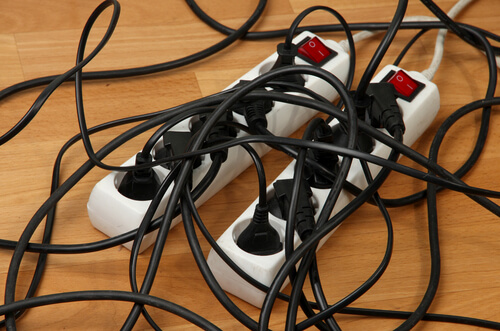Remember when Twitter launched?
Probably not, unless you were an early, early, EARLY adopter.
In the summer of 2006, blogging was taking off, interest in digital among the common folk was growing, and the idea was more, more, MORE!
Say more. Write more. Publish more.
The concept of micro-blogging was antithetical to the times. Many people thought Dorsey and company crazy to limit tweets to 140 characters.
But, you know, it kinda took off.
Today, Twitter boasts nearly 300 million active users.
And, along with its fellow social media machines such as Facebook, LinkedIn, Instagram, Pinterest, Vine, SnapChat, etc., have all contributed to the Internet’s version of the common cold.
We all get it at one point or another. We spread it amongst our colleagues, friends, and family members. It feels never ending. And it’s highly contagious.
Content overload.
Content Overload Sucks!
Ok, this might just be me, but I doubt it. I find the amount of content out there staggering.
As of 2013, 27 million pieces of content were shared daily.
And as for 2015? Seventy-seven percent of marketers say they will increase content production in the next 12 months.
Kill me now.
And that’s just marketers!
Factor in news, television, popular culture, video…the numbers become more than overwhelming.
Content overload actually makes me want to cry. But it turns out, that’s perfectly normal!
Science is My Friend
FastCompany.com wrote about how, and why, content overload affects our brains:
Psychologist and behavioral neuroscientist Daniel Levitin, author of the upcoming book The Organized Mind: Thinking Straight in the Age of Information Overload, says information overload creates daily challenges for our brains, causing us to feel mentally exhausted before the day’s end.
He says, “Our brains are equipped to deal with the world the way it was many thousands of years ago when we were hunter-gatherers. Back then the amount of information that was coming at us was much less and it came at us much more slowly.”
The pace at which we’re exposed to information today is overwhelming to our brains, which haven’t adapted fast enough to easily separate relevant data from the irrelevant at the speed we’re asking it to. As a result, our brains become easily fatigued, and we become more forgetful.”
Information overload also results in reduced productivity at work, dampened creativity, and high stress levels.
And, it’s addictive!
“This.” Instead of That
That’s why I was really excited to read about a new kid in digital’town: This.
(Yes, the punctuation is correct. This., with a period.)
A new, highly coveted social network, This. allows users to post only one link per day.
Yes, you read that right. One. Link. Per. Day.
You can follow other users. You can click “thanks” to endorse the link they’ve shared. But you can only share once a day.
Hello, Nirvana!!
Already written up in the New York Times, news hounds and tech heads are going mental for it, reducing themselves to begging on Twitter and the like for an invite (it’s only three months old and still in private beta).
And that doesn’t surprise me. People who work in the media are probably suffering the most from information overload these days.
Imagine, heading to a site, knowing you will only find the best of the best of the best of what’s online on that day.
I think its optimum selling feature is its current exclusivity and invite-only status. I hope they keep it that way.
Back to the Basics
Lucky users, such as Boulder, Colorado tech CEO Wendy Norris, say it’s simple and unpretentious, “The site is not a Silicon Valley wunderkind that’s overdesigned and overhyped. It’s not much more than a low-rent prototype, but that to me is its genius.”
I think people are getting tired of the glitz, gadgets, and gew-gaws of new technology. Not everyone. But some.
Maybe folks are getting tired of the relentlessness of it all, and finally realizing that content overload delivers little to no real value, and in fact can be bad for business.
The joke on all of us is how everyone thought technology was going to simplify our lives. Give us more free time. Make our jobs easier. We all know that hasn’t happened. Far from it.
I hope This. makes it.
I would pay for a service that serves me delectable content amuse-bouche style.
Would you? I would love to hear your thoughts on This., and on content overload in general.
Image credit: Shutterstock
